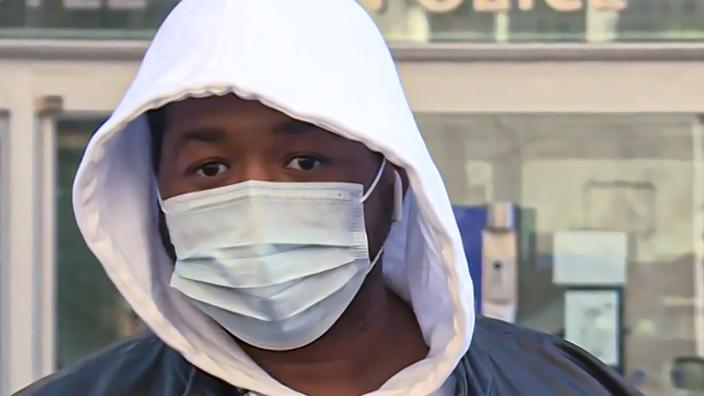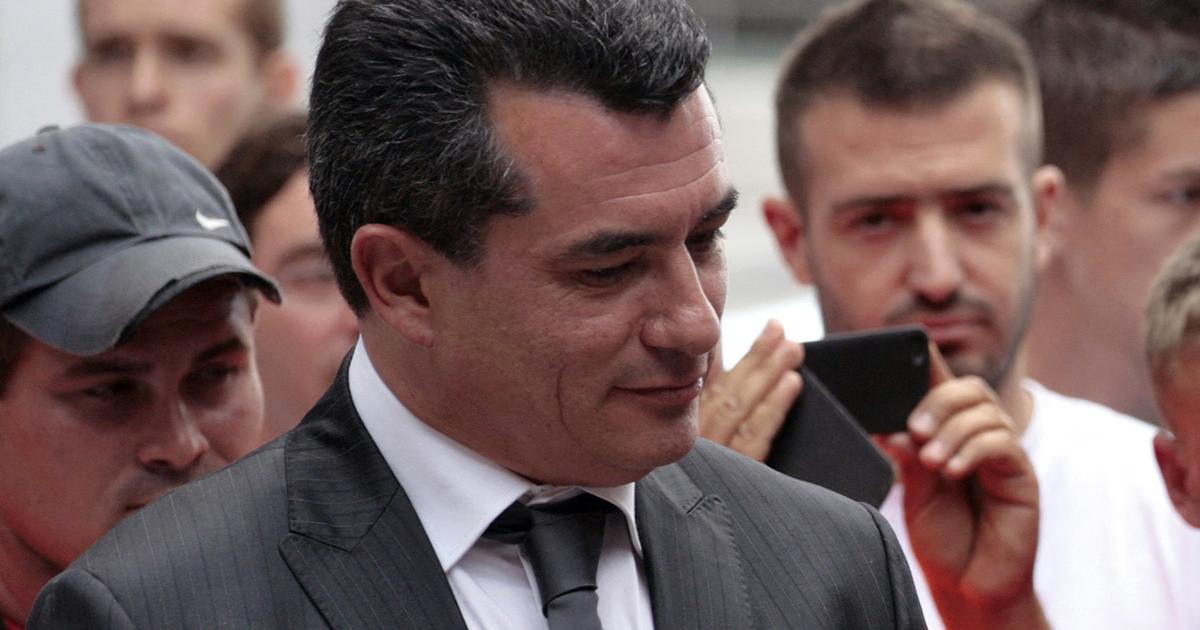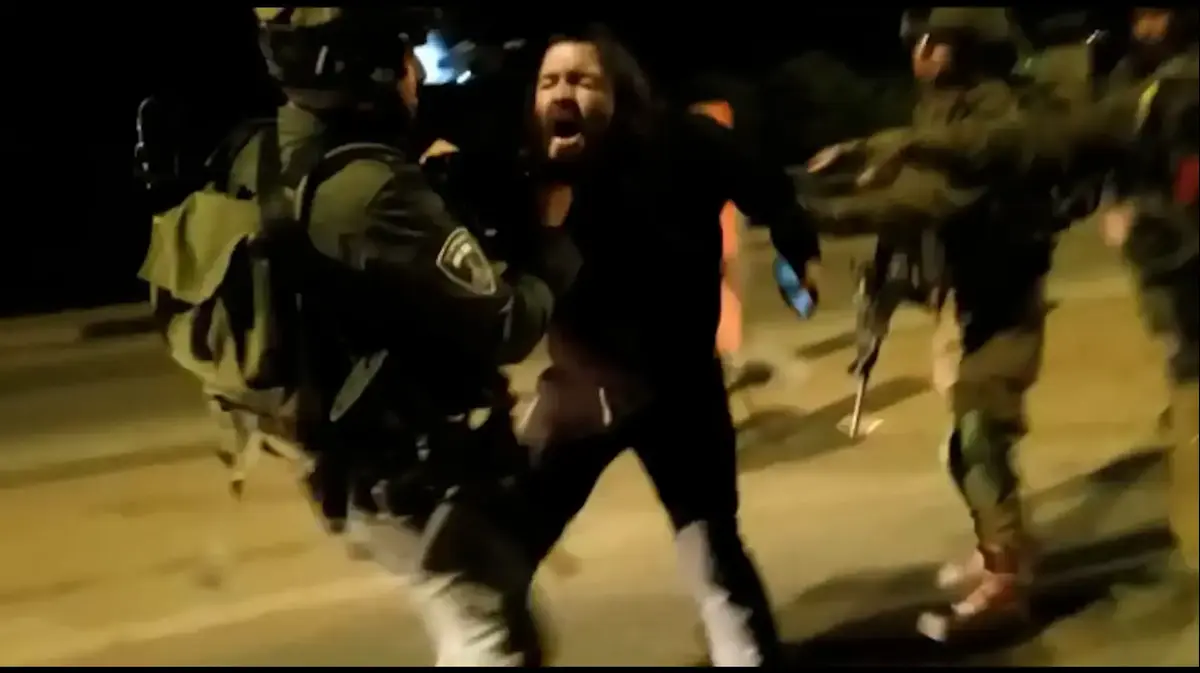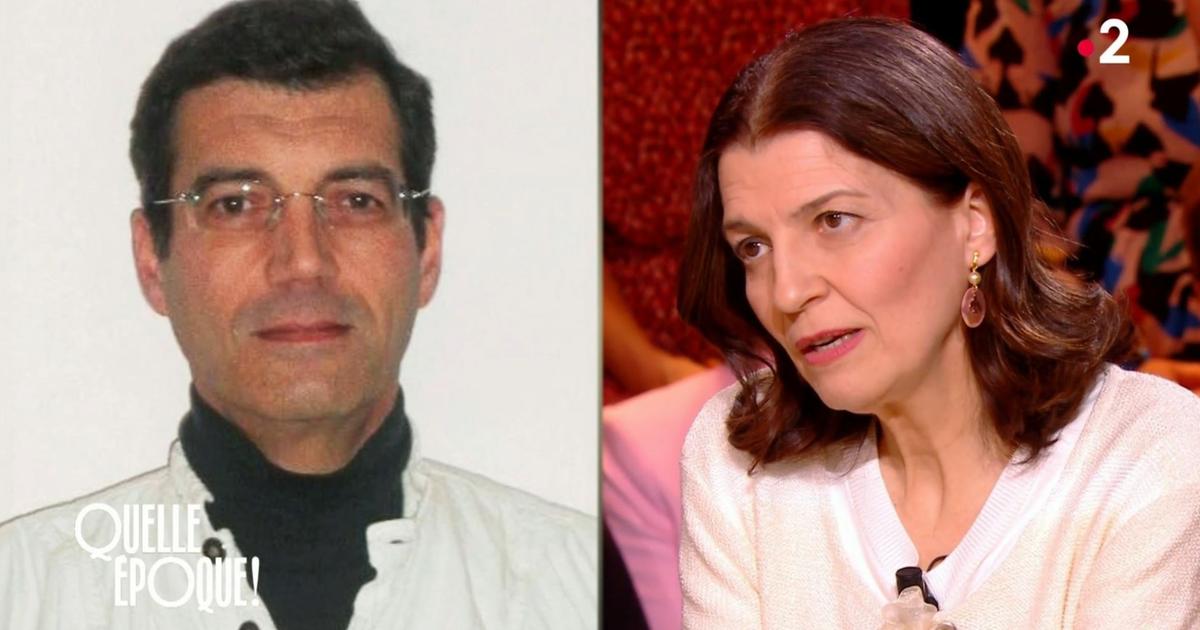In the case of the beating of producer Michel Zecler, the beatings perpetrated by the police provoked indignation.
The latter were moreover indicted for
"willful violence by a person holding public authority"
.
In their report supposed to describe the unfolding of the facts, they claimed that the manager of the label Black Gold Corp lured them inside a narrow airlock.
Before the artist tries to grab an official's handgun.
A description allegedly remote from reality, which earned them an indictment for "
forgery in public writing
".
During their custody in front of the General Inspectorate of the National Police (IGPN), the agents however firmly denied having committed this serious crime.
Which one could send them to jail.
To read also: Xavier Lemoine: "According to the orders it receives, the police alternate between laxity and abuse of force"
The forgery is defined by article 441 of the Penal Code: "
Constitutes a forgery any fraudulent alteration of the truth, likely to cause a damage and accomplished by any means that it is, in a writing or any other medium of expression of a thought which has as its object or which may have the effect of establishing proof of a right or of a fact having legal consequences ”.
A crime if committed by an average citizen, it becomes a crime if perpetrated "
by a person holding public authority or charged with a public service mission acting in the exercise of his functions or his mission
".
We then speak of forgery in public writing.
The police officers obviously come within this framework, having acted within the framework of their public function.
For them, on paper, the penalty could be very heavy: up to 15 years of criminal imprisonment and a 225,000 euros fine.
"This offense protects the public faith, the strong confidence that one can have when one is in the presence of a public force"
Patrick Mistretta, professor of criminal law and director of the criminal law center at the University of Lyon-3
This offense is all the more serious since it is a report drawn up by a public official.
This document has a real
"probative force"
, underlines with the
Figaro
Patrick Mistretta, professor of penal law and director of the center of penal law at the university Jean Moulin Lyon 3.
"The PV engages a lot, has credit.
It tells about the circumstances that led to an arrest, ”he
adds.
On the qualification of the facts itself, the officials are simply accused of lying.
“We speak of a 'false intellectual'.
We alter the truth by noting as true facts which are false, ”
he continues
.
Not only would the truth have been altered, but it caused prejudice, starting with an
"attack on public faith"
, as ruled by the Court of Cassation in a judgment delivered on May 24, 2000 in the case of 'a man who illegally exercised the profession of banker (and his accomplice, author of forgery).
"This offense protects public faith, the strong confidence that we can have when we are in the presence of a public force,"
insists our interlocutor.
Many precedents
It is not uncommon to see police officers accused of committing forgery in public writing.
There are many examples.
In 2010, seven officials from Seine-Saint-Denis were sentenced to terms ranging from six months to one year.
They had invented a scenario from scratch to explain a chase with a motorist in which one of them was injured.
In June 2017, a Marseille judicial police officer received an eighteen-month suspended prison sentence for having written a report taking at face value the words of a colleague attacked in civilian clothes.
At the end of 2018 again, a municipal police officer from Clamart, in the Hauts-de-Seine, claimed to have found bags of cannabis resin on three minors arrested.
Major problem: he had himself deposited the drugs at the feet of two of them.
Read also: Who is Michel Zecler, the rap producer beaten up by the police?
The fakes are also sometimes accompanied by violence.
As in 1997, when three peacekeepers from the Bobigny police station arrested a person outside their jurisdiction.
In their report, they lied, claiming to have arrested him on their territory, claiming a hit-and-run which had never taken place.
For these facts, they were sentenced to fifteen months suspended prison sentence.
More recently, the video surveillance revealed facts which led to the prosecution of several officials.
In Belfort, two municipal police officers were indicted in September, accused of having tampered with the arrest report of a scooter driver.
The document mentioned a questionable transaction with the occupant of a car.
However, the recorded images showed that the driver had been struck by one of the police officers on a bicycle.
For Thierry Vallat, lawyer at the Paris bar, these cases are now
"quite common".
“We see a number of them emerging, whether they are municipal or national police officers.
Their actions are often highlighted by video surveillance or witnesses who will or will not accredit their statements, ”he
comments.
It should be noted that the penal sanctions against them are regularly accompanied by prohibitions to practice for several years.
And when the forgery has had consequences, the civil liability of the agent can be called into question.
He may then be forced to pay damages, in addition to legal fees.
"
They are humans, some make mistakes, like doctors make mistakes,
" says Patrick Mistretta.
Towards correctionalization?
As mentioned earlier, a forgery in public writing, committed by a police officer, is a crime.
He should therefore be tried by the Assize Court.
But the reality is quite different.
If there are a few judgments made by the criminal chamber in recent years, most of these facts are correctionalized.
"It is a general trend which does not concern only these facts"
, analyzes Thierry Vallat.
“
Organizing a trial at the assizes is expensive, you have to mobilize the jurors, you need several days of debates.
It is very cumbersome to set up, the courts are congested, so it is now almost only done for “big cases” such as murder or rape,
”he says.
This is the reason why the Chancellery is currently experimenting with the creation of departmental criminal courts, which are supposed to unclog the foundations.
To read also: Éric Delbecque: "We must stop the trial in overall legitimacy of the police"
For this very practical reason, it is therefore not rare that the judicial authority does not retain the aggravating circumstance of forgery committed by an agent of public authority, which tilts the offense from the offense to the crime.
Agents are thus most often prosecuted on the basis of an offense punishable by 10 years imprisonment and a fine of 150,000 euros.
The case is judged not by jurors but by professional magistrates of the criminal court.
What is faster, more practical, but which also makes “go
down a notch
” in the scale of the penalties, notes Patrick Mistretta.
But, as a well-informed source confides in
Le Figaro
, correcting the facts is also a way of exposing civil servants less to the media.
"
Let us not forget that the prosecutor is the head of the judicial police, he works with the services, there could sometimes be a certain protection with regard to them
", one informs, while specifying that the side
" practice ”
is still the number one argument for payment in correctional.
"Let us not forget that the prosecutor is the head of the judicial police, he works with the services, there could sometimes be a certain protection of the civil servants"
A well-informed source at <i> Figaro </i>
What will happen to the Zecler affair?
Where will the police be tried?
Our experts are divided.
Patrick Mistretta believes that the extreme media coverage of this thorny issue can make it finally be transmitted to the assizes:
"I see badly the prosecution to correct.
He will be vigilant, sift everything.
What I can say is that if we went to corrections, it could be challenged quite easily.
It is necessary to understand the qualification in all its components, and in particular the fact that the forgery is committed by a person holding public authority ”
.
Thierry Vallat, he is not of this opinion.
"
Even in the case of the Clamart police officer, who staged, brought false evidence, we judged in correctional
", he certifies.
Before deciding, categorically: "
There is no chance that it will go to the assizes, which will not prevent heavy sanctions if the facts are serious
".









